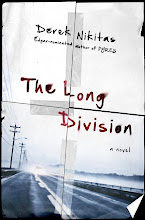Below is a video for "Slow Show" I found on YouTube. It's a fan video, not official, but I like it anyway because it combines two things I love: the song and French New Wave. Yes, I know I'm only admitting my stereotypically pretentious white-boy hipsterism when I mention French New Wave, but fuck it. And praise Netflix for opening this world to me. It has enriched my life, all right?
The movie clips shown here are from Jean-Luc Godard's Masculine/Feminine, starring Chantal Goya and Jean-Pierre Leaud. Here Goya plays a role usually reserved for Anna Karina, who was a frequent Godard collaborator (and once his wife). Even from these short clips you can see why Godard liked to work with these women: Goya's a work of art all to herself, in that essentially French manner. It is true that Godard tended to visually objectify, dwelling on them with long close ups just because they looked compelling enough to sustain it, but he also made these women the center of his films, gave them complex and compelling characters.
The guy who appears in these clips is, again, actor Jean-Pierre Leaud, best known for playing the little boy Antoine Doinel in Francois Truffaut's The 400 Blows, perhaps the masterpiece of the French New Wave movement. For years I made my undergrad students at SUNY Brockport watch this movie, and more than a few times I think their eyes were opened to what depth of feeling cinema could achieve, but rarely does. Either that, or they were humoring me.
French New Wave was the cinematic "punk" movement of the 1960s. It rebelled against French films that were too bourgeois, too carefully made and pretentious and distant. French New Wave movies were often technically shoddy (though their "mistakes" became techniques appropriated by filmmakers to this day) but passionate and intimate, particularly those by Godard and Truffaut (in the 60s and early 70s). Godard has a tendency to be cold sometimes, but not in Masculine/Feminine, A Band of Outsiders, A Woman is A Woman, or My Life to Live, my favorites of his.



No comments:
Post a Comment